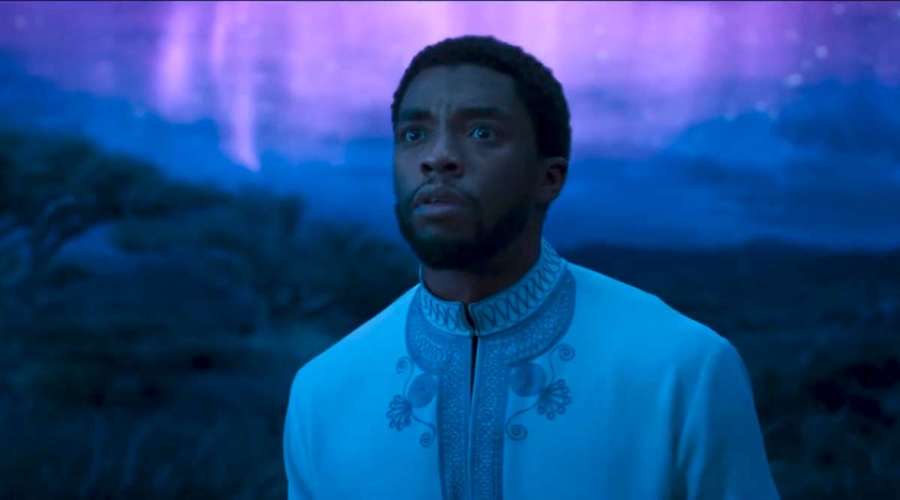
Last night we were collectively gut-punched when we learned that actor Chadwick Boseman, and fellow Bison, lost his four-year battle with colon cancer. The shock was multiplied because we never knew that he was sick and yet he gave us his all in his films while fighting his own battle privately. That takes tremendous character. He was truly a real life superhero.
— Chadwick Boseman (@chadwickboseman) August 29, 2020
Chadwick was only 43 years old when he died, which means he was diagnosed at age 39, which is unthinkable. As many of my friends start grazing the edges of 40, his death is a stark reminder of our mortality. These issues, and many others, are drastically impacting our people and communities in a very aggressive fashion at very young ages. We have to know the risks and be more mindful in getting the preventative care we need. And while healthcare disparities within Black communities are high, we really have to work twice as hard to educate our people and provide the resources necessary so that we are not burying our young. Our lives and our futures depend on it.
DID YOU KNOW?
According to the American Cancer Society. Black Americans “not only have the shortest survival rate of any racial or ethnic group in the United States for most cancers, but they also have the highest incidence of colorectal cancer. Nearly 20,000 new cases of colorectal cancer were expected in the United States among African Americans in 2019, with incidence rates 24 percent higher in black men and 19 percent higher in black women compared to other races”. In addition, “Black colorectal cancer patients are also 15 to 20 percent more likely to die from the disease than patients of any other race.” Black people are also more susceptible to more aggressive types of colon cancer “fueled by a mutation in the KRAS gene, which drives cancer growth”. Colon Cancer in Black people also occurs more often on the right side of the colon, another factor that can lead to poor prognoses.
WHY US?
There are socioeconomic factors that make it more difficult for Black Americans to gain access to screenings. This is literally killing us. The recommended age to get screened is 45 and less than half of Black Americans are screened by that age. Chadwick was diagnosed at age 39, six years younger than the recommended screening age. And this is something that effects not just Black men, but Black women too. Ladies, we need to have colon screenings as well! We can not ignore the stigmas that are associated with colon screenings. Guys, getting your colon screened does not make you gay. Being attracted to other men makes you gay. Stop that shit. Getting your colon screened makes you smart and could possibly save your life!
Diet is also a contributing factor. Our diets tend to be high in fat and low in fiber. That, coupled with higher tobacco-related illness, more obesity, less physical activity, and lower intake of vitamins C and E, can also lead to colon cancer in Black people.
WHAT CAN WE DO?
Colonoscopy, an exam that inserts a long, flexible tube (colonoscope) into the rectum with a tiny video camera at the tip of the tube allowing the doctor to view the inside of the entire colon, is “considered the gold standard colorectal cancer screening because cancer-causing polyps can be removed during the exam” however there are other tests available. Any test is better than no test.
Other screening tests include:
- Fecal occult blood test, which can detect blood in a stool sample
- Cologuard, a stool DNA test you can take at home
- Virtual colonoscopy, which requires the same preparation as a colonoscopy, but no sedation, for those who are medically unable to undergo colonoscopy
Demand a screening even if your doctor tries to talk you out of it or says you don’t need it, especially if you have a family history of colon cancer. And if your doctor denies it, make sure they note in your medical record that you requested a screening and were denied.
Please visit the following for more information about the colon cancer disparities in Black Americans:
Young African Americans with Colon Cancer Fare Far Worse
Colon Cancer Disparities in African Americans
Colon Cancer and the Black Community – Know Your Risk
Why are African Americans at a Greater Risk for Colorectal Cancer
Colon cancer is not an “old people’s” disease. It is very real and very aggressive if ignored.
I’mma let Chadwick take us home. He was far too young to join the ancestral plane, but he managed to make a tremendous mark in our lives and this world in his short time here. Hopefully his story can save lives too. He will forever be our superhero, even in death. Rest in Power, King!
